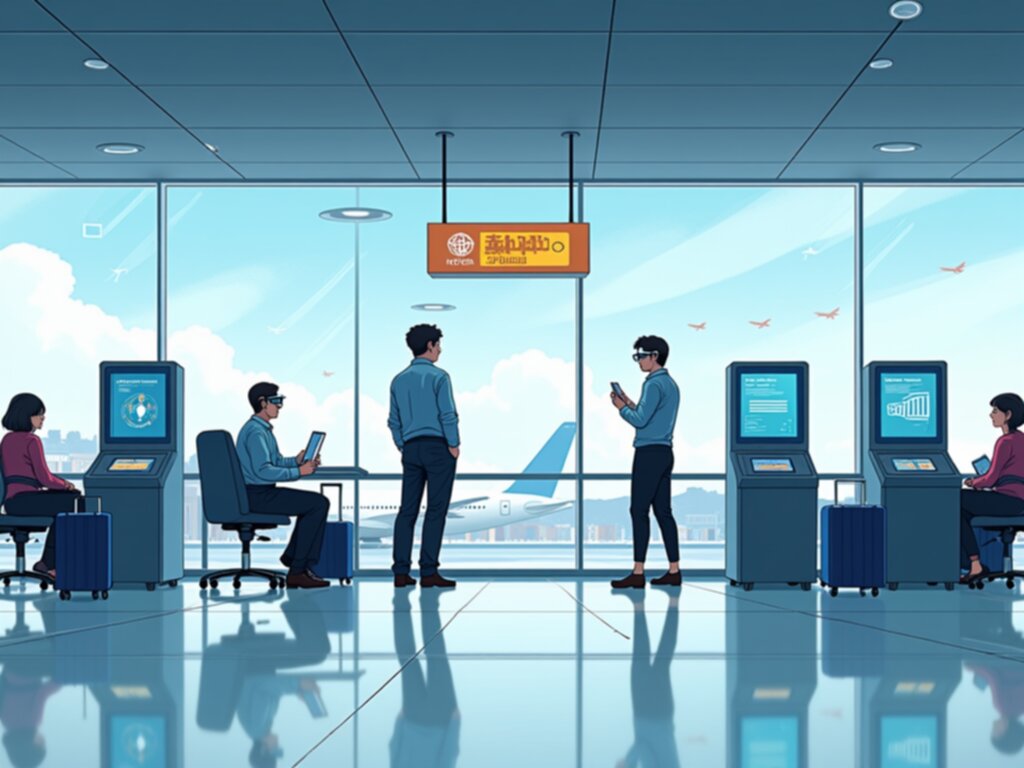Delta's On-Time Performance at DTW A 2024 Analysis of Arriving Flights

The flow of air traffic through Detroit Metropolitan Wayne County Airport (DTW) is a fascinating study in operational efficiency, especially when focusing on a major carrier like Delta Air Lines. When you start pulling at the threads of on-time performance data for a specific period, particularly looking at arrivals, you begin to see the subtle stresses and successes within a massive logistical machine. I've been tracking the arrival metrics for Delta at DTW across the past year, trying to isolate what truly drives the minutes—or sometimes hours—of delay. It’s easy to point fingers at weather, but the real story often lies in the ground operations and the sequencing into the flow management system.
Let's be clear: DTW is a critical hub, a place where long-haul feeds meet regional feeder routes, all funneling into the East Coast corridor or connecting onward to the Midwest. Delta's footprint there is substantial, making their arrival statistics a bellwether for system health, not just for the airline, but for the entire Northeast air traffic control sector. I wanted to move beyond the simple percentage figures often quoted and dig into the *why* behind the deviations from schedule, paying close attention to the arrival gate times versus the actual touchdown times.
When examining the arrival data for Delta at DTW, one pattern that consistently emerged was the effect of late-arriving inbound aircraft impacting subsequent departures, which then circles back to affect later arrivals—a classic cascading effect. Specifically, looking at flights arriving between 14:00 and 18:00 local time, I observed a disproportionate number of delays attributed to "taxi-in time" that extended beyond the FAA’s standardized 15-minute buffer. This suggests that while air traffic control might be clearing them for landing promptly, the sequencing for gate assignment or the capacity of the taxiway system itself becomes the bottleneck during peak afternoon operations. If an aircraft is held on the active runway or taxiway for an extra ten minutes waiting for a gate to clear, that ten minutes is instantly added to the arrival clock, even if the wheels touched down early. I think this points toward a need for closer examination of gate utilization rates and ramp control communication protocols during those critical afternoon hours.
Another area that warrants deep inspection involves the operational recovery time from minor disruptions earlier in the day, particularly those originating from the West Coast morning bank. If a flight originating in Los Angeles experiences a twenty-minute delay leaving the gate due to minor maintenance checks or crew rest requirements, that small deficit rarely gets recovered during the flight segment into Detroit, given the established slot times. Consequently, these marginally late aircraft arrive during a period when the airport is already experiencing high demand for arrival slots. What I found interesting was the correlation between the aircraft type and the delay persistence; wide-body international return legs seemed to handle minor schedule variances better than the heavily utilized narrow-body domestic fleet shuffling between DTW and hubs like Atlanta or New York. This suggests that the scheduling density Delta employs on their primary domestic routes leaves virtually no padding for recovery, turning small initial delays into confirmed late arrivals at DTW. It’s a demonstration of running the schedule right up against the physical limitations of the operation.
More Posts from aiflightrefunds.com:
- →International Flight Pricing Trends Analyzing the 7-Month Booking Window for Best Deals
- →Lufthansa's AIG Travel Insurance 7 Critical Coverage Gaps Every Passenger Should Know Before Booking
- →Delta Flight Cancellation Fees in 2024 Basic Economy vs Main Cabin Breakdown
- →Munich Airport's December 2023 Winter Storm Crisis 2,700 Flights Cancelled and €47M in Potential Refund Claims
- →Delta's Real-Time Flight Arrival Updates A Comprehensive Look at Passenger Information Tools
- →The Consequences of Missing Flight Check-In What You Need to Know